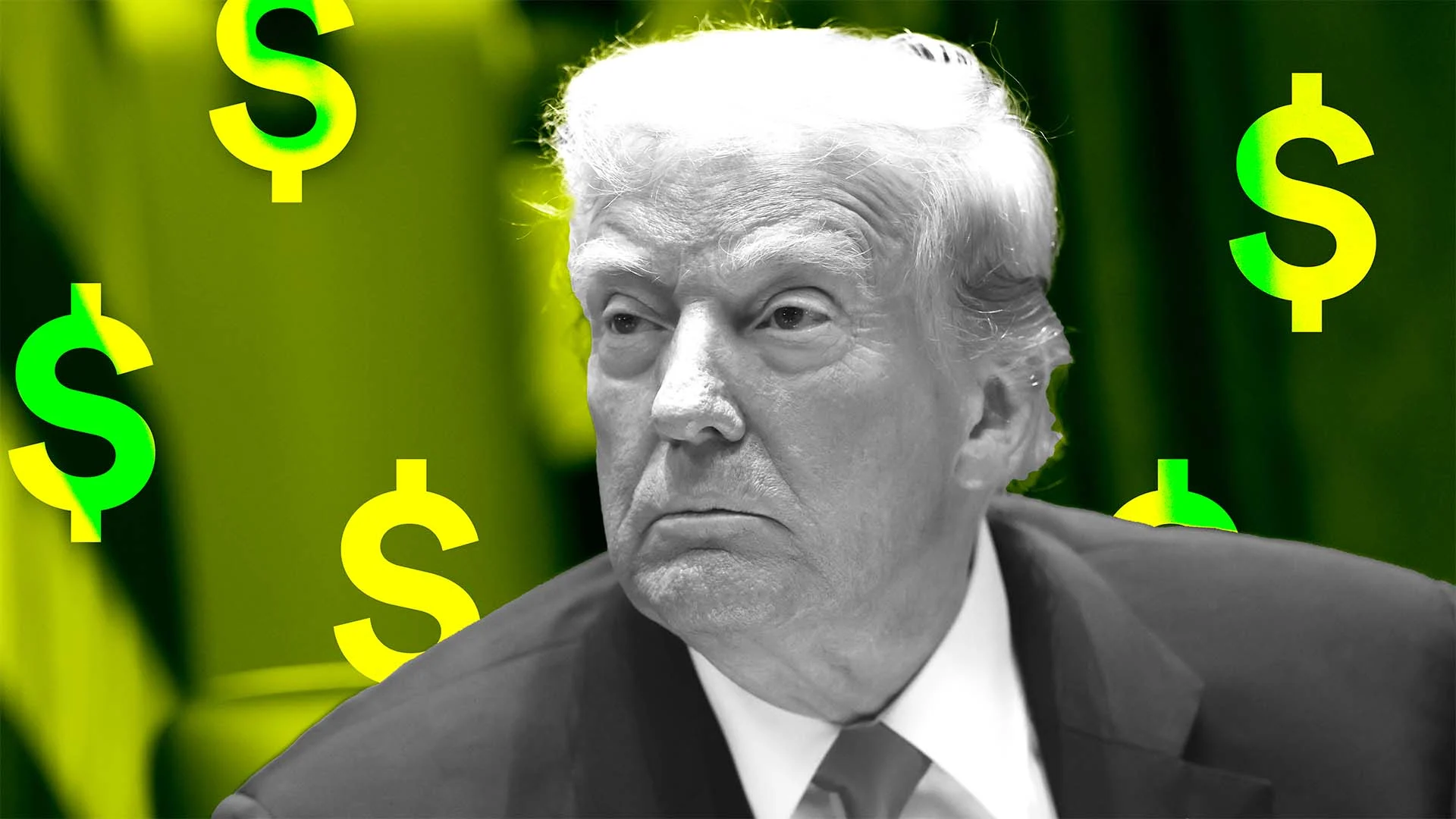Trump Tax: Business Owners Are Mulling Tariff Surcharges and Reminders of Who Is to Blame
As U.S. businesses continue to adjust to the complexities of trade tariffs, many owners are contemplating implementing tariff surcharges to cope with increased operational costs.

As U.S. businesses continue to adjust to the complexities of trade tariffs, many owners are contemplating implementing tariff surcharges to cope with increased operational costs. The imposition of tariffs, especially on Chinese imports, has resulted in a significant rise in the prices of goods, which has strained businesses already dealing with a turbulent economic climate. As these costs rise, business owners are considering passing some of these costs on to their customers in the form of additional surcharges, but this move carries its own set of risks and consequences.
The tariffs imposed by the government have affected nearly every industry, from manufacturing and construction to agriculture and retail. For businesses relying on imported materials and goods, the tariffs have significantly increased the cost of production. Some business owners have reported price hikes of 30% to 100% depending on the specific product and tariff category. Faced with these rising costs, many owners are finding it increasingly difficult to absorb these price increases without affecting their bottom line. As a result, there is growing consideration among business leaders to introduce surcharges as a means of recovering some of the extra costs associated with the tariffs.
However, the decision to implement surcharges is not without its challenges. There is concern about how customers will react to these added costs. For some businesses, passing along the increased costs could alienate customers, potentially leading to a drop in sales. The risk is that customers may choose to take their business elsewhere or reduce their consumption, which could lead to further financial strain. Additionally, businesses are already contending with market uncertainty and a volatile economy, and the addition of surcharges could heighten consumer frustration, particularly if they do not fully understand the reasons behind the price increase.
Amid these struggles, many business owners are also grappling with the political dynamics surrounding tariffs. There is a growing sentiment that businesses are unfairly bearing the brunt of the blame for inflation and rising prices, even though the tariffs themselves are a significant contributing factor to these issues. Critics of the current administration’s trade policies argue that tariffs are a primary cause of economic disruptions, and businesses are left to manage the fallout. Despite this, businesses are often the ones facing public scrutiny when prices rise, while policymakers may not always take responsibility for the broader economic impacts of these trade policies.
This disconnect between the private sector and policymakers has led to frustrations among business leaders. Many believe that the administration’s approach to trade and tariffs is causing long-term damage to the economy, yet businesses are left to weather the storm. As prices continue to rise, business owners are left to figure out how to manage their costs without losing their customer base or damaging their reputations. This ongoing tension has sparked calls for clearer communication between businesses and policymakers, particularly about how the tariff policies are designed and what steps are being taken to address their economic impact.
Looking ahead, the future remains uncertain. The possibility of additional tariff increases looms, and many business owners are preparing for further cost burdens. As they navigate this shifting economic landscape, businesses must weigh the potential benefits of implementing tariff surcharges against the risks of damaging customer loyalty and overall market competitiveness. The added complexity of political tensions only compounds the difficulties businesses face as they attempt to balance their financial needs with consumer expectations.
There is also an urgent need for a more balanced approach that acknowledges the complexities of global trade and its impact on domestic enterprises. Business owners are calling for policies that not only address trade imbalances but also support businesses in coping with the fallout from tariff hikes. This includes providing clearer guidance on the future of tariff policies and offering financial support or relief measures to help businesses adapt to the changing trade environment. Without such measures, businesses may continue to bear the brunt of an unpredictable and challenging economic climate.
In conclusion, U.S. businesses are at a crossroads as they deal with the ongoing fallout from tariffs. While some owners are considering surcharges to offset increased costs, the larger issue of political responsibility and accountability remains unresolved. Moving forward, it is critical for policymakers to engage more effectively with the business community to create solutions that address the underlying causes of economic challenges while providing a more sustainable path forward for businesses of all sizes. Only by working together can the negative effects of tariffs be mitigated and a more balanced trade environment created.




